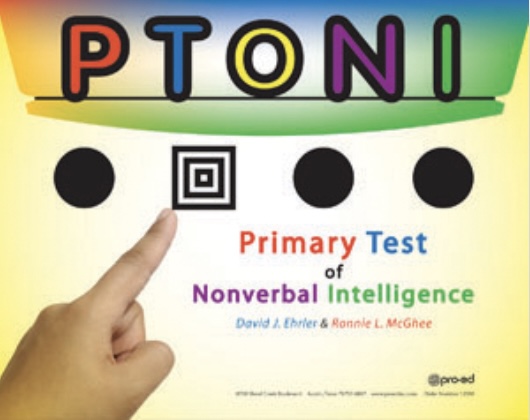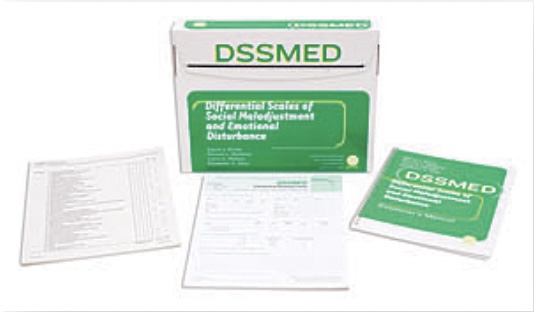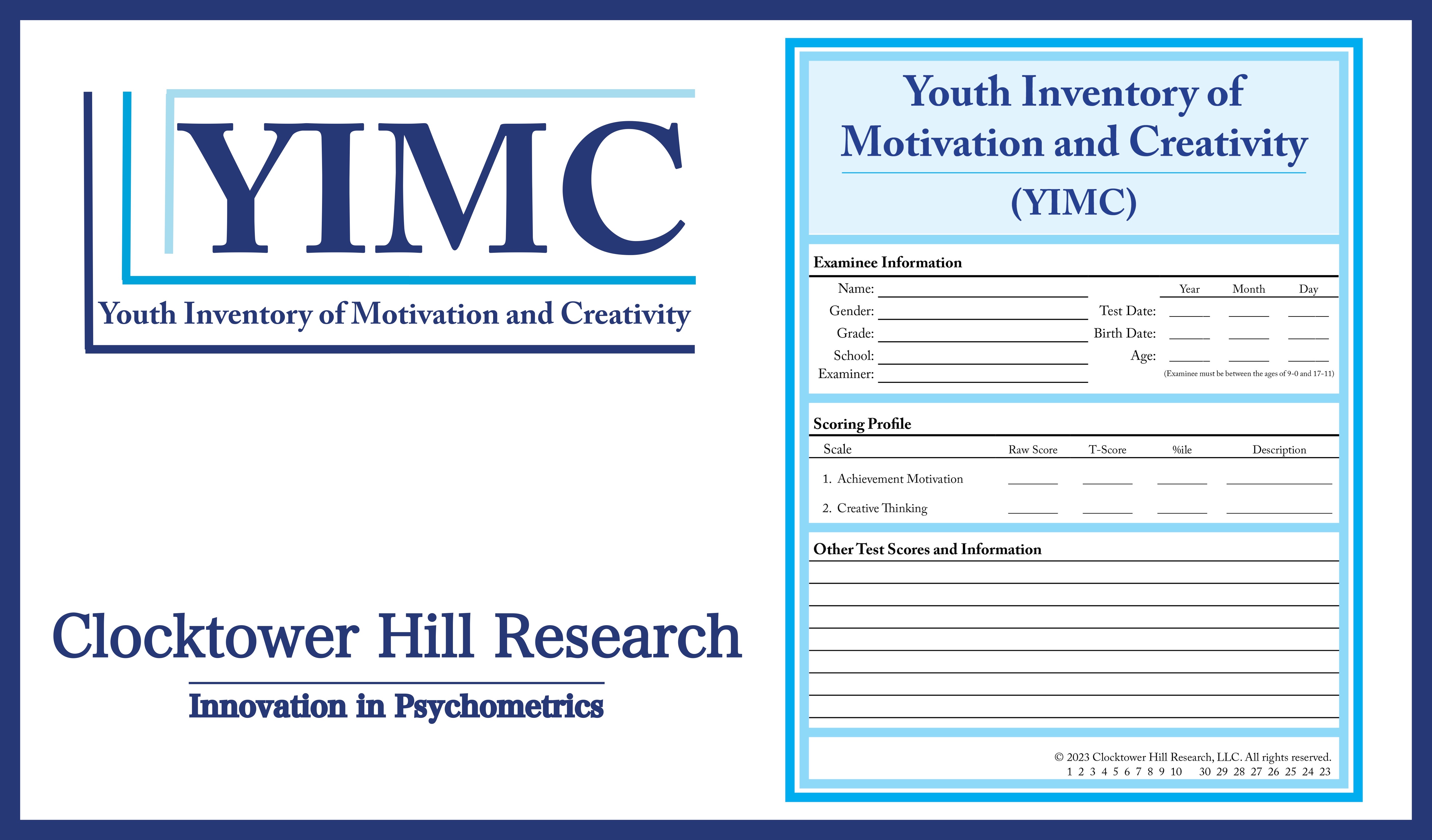
Ages: 3-0 through 11-0
Testing Time: 5 to 15 minutes
Administration: Individual
The Primary Test of Nonverbal Intelligence (PTONI) is a theoretically sound, research-based method of assessing reasoning abilities in young children. Psychologists, diagnosticians, special educators, speech-language pathologists, and other professionals can use this test to identify both severe intellectual deficits and superior cognitive intelligence; help estimate future school success based on family history, educational background, and personality traits; and study a wide range of researchable topics and issues. The PTONI was normed on a culturally and ethnically diverse demographic sample of 1,010 children, residing in 38 states. It is unbiased, quick, accurate, and cost-efficient. Testing takes approximately 5 to 15 minutes. Minimal oral directions and a pointing-response format make it one of the simplest and easily understood of all nonverbal intelligence tests designed for young children.
Ages: 5-0 to 20-11
Testing time: 5 to 15 minutes
The SOIFE is a scientifically based structured observation system designed for the purpose of helping professionals verify deficits in general intellectual functioning that are consistent with mental retardation or intellectual disabilities. The system links structured observation and statistical probability for diagnosis of intellectual disabilities based on norm-referencing. The SOIFE is composed of 24 items addressing a broad set of problem-solving strategies, conceptual reasoning, self-regulating cognitive abilities, executive-system concepts, and ability to understand spoken language and communicate orally. The SOIFE’s manual outlines the instrument's validity and reliability. For example, internal consistency reliability coefficients exceed .90 for the entire sample. Evidence for stability and interscorer reliability is also provided and coefficients are in the .80s and .90s. Thus, the SOIFE can be used with confidence to yield consistent results.

Ages: 6-0 through 17-11
Testing Time: 40 minutes to 2 hours
Administration: Individual
Scoring: Online only
The Detroit Tests of Learning Abilities–Fifth Edition (DTLA-5) is the oldest and most venerable of the tests of specific cognitive abilities. The figure below illustrates the DTLA-5 test structure. The test includes 12 subtests: Humanities/Social Studies, Science/Mathematics, Word Opposites, Word Associations, Geometric Matrices, Geometric Sequences, Sentence Imitation, Word Span, Design Reproduction, Reversed Letters, Trail Making, and Rapid Naming. The results of the subtests can be combined to form 9 composites. Six of these composites represent different cognitive subdomains (Acquired Knowledge, Verbal Comprehension, Nonverbal Problem Solving, Verbal Memory, Nonverbal Memory, and Processing Speed); two of these composites represent larger, important cognitive domains (Reasoning Ability and Processing Ability). One global composite is formed by combining the results of all 12 of the DTLA-5 subtests and represents general cognitive ability. Examiners can administer the subtests from one or both of the DTLA-5 domains, depending on the purpose of the evaluation.

Ages: 6-0 to 17-11
Testing Time: 5-10 minutes
Administration: Individual
The Differential Scales of Social Maladjustment and Emotional Disturbance (DSSMED),is a 46-item, norm-referenced teachers’ rating scale that can be used to identify students with socio-emotional disturbance. The DSSMED is used primarily to differentiate between students with social maladjustment and those with emotional disturbance. The DSSMED is normed on a national sample of 1,337 students and has proven reliability and validity.Teachers, school psychologists, or other knowledgeable professionals rate the items on a 5-point Likert-like scale. Ideally, the examiner should be someone who has had regular, daily contact with the student in a school setting for at least four weeks. It takes approximately 10 minutes to rate a student’s observed emotional behavior. Results of the DSSMED can be used as part of a pre-referral/referral tool to identify “at risk” students and to assist with education programming decisions.

Ages: 3-0 to 12-11
Testing Time: 10-15 minutes
Administration: Individual
The Token Test for Children-Second Edition (TTFC-2) is a reliable and effective screening measure for assessing receptive language in children ages 3 years 0 months to 12 years 11 months. Administration is rapid, yielding raw scores, standard scores, percentile ranks, and age equivalents. The normed representative sample consists of 1,310 children, residing in 22 states.
TTFC-2 comes with 20 small tokens, varying in size (large and small), shape (round and square), and color (blue, green, yellow, white, and red). The child is given three opportunities to practice. The administrator then gives the child 46 linguistic commands, to which they must respond by manipulating the tokens. The commands are arranged in four parts of increasing difficulty, and must be administered in consecutive order.

PDF form can be completed, downloaded/printed then sent in for fullfilment.
Ages: 9-0 through 17-11
Testing Time: 5 to 15 minutes
Administration: Individual or Group
Pricing: $148.00 (25) Administration and Scoring Forms
The Youth Inventory of Motivation and Creativity (YIMC) is a standardized, norm-referenced self-report inventory designed to assess dispositions in youth relative to achievement-orientation, conscientiousness, creative and flexible thinking and intellectual curiosity. It has two scales: Achievement Motivation and Creative Thinking. Gifted educators, psychologists, diagnosticians and other professionals can use this test to evaluated propensities for achievement motivation and creative thinking aptitude in youth. The YIMC was normed on a diverse demographic sample of 2066 youth between the ages of 9-0 and 17-11 residing in 21 states. Testing takes approximately 5 to 15 minutes. The YIMC can be administered individually or in groups.
About Us
Clocktower Hill Research LLC was founded in 2003 as a research organization and developer and publisher of high quality assessment and resource materials for psychology, education, speech pathology, early childhood intervention, occupational, and physical therapy.

David J. Ehrler, PhD
Dr. Ehrler is a developer of psychological and educational tests, and he pursues independently funded research in the areas of cognition, language, and personality development. Dr. Ehrler holds a PhD in educational psychology with an emphasis in school psychology from Georgia State University, an EdS in school psychology from Georgia State University, an MEd in school psychology from Auburn University, and a BS in psychology from Berry College (Rome, Georgia).
Over the past two decades, Dr. Ehrler has served as an educational and test development consultant and instructor for educators for regional educational services and practiced school psychology. He has authored and coauthored numerous articles, and has presented regionally and nationally on the topics of intelligence assessment, personality assessment, learning and behavioral disorders, information processing theory, academic achievement prediction, and social–emotional adjustment in the schools.

Ronnie L. McGhee, EdD
Dr. McGhee holds an EdD, EdS, and MEd with an emphasis in school psychology from the Department of Counselor Education and Counseling Psychology at Auburn University, and a BA with an emphasis in interpersonal communication from the Department of Speech Communication at Columbus State University.
He has authored numerous theoretical and research publications and presented at many state, national, and international professional meetings on a wide range of topics, including cognitive dissonance, emotional intelligence, intellectual assessment, psychotherapy, self-actualization, behavior modification, models of personality, risk taking behaviors in preadolescents, social maladjustment in children, emotional and behavioral disturbances in children, specific learning disabilities, and models of cognition. He has also served as standardization coordinator and/or research
consultant for more than 25 nationally and internationally published assessment instruments.
Dr. McGhee was a practicing school psychologist for more than 30 years in multiple public school systems in southwest Georgia. Upon retirement in 2011, he joined the Department of Defense Dependent Schools (DoDDS) as a practicing school psychologist, and served military students and families in Spangdahlem, Germany; Guantanamo Naval Base, Cuba; and Okinawa, Japan. Presently, Dr. McGhee continues his research interests in the areas of early personality development, assessment of creativity, and emergence of bilingualism during childhood. He also maintains his practice as a school psychologist in Japan.




